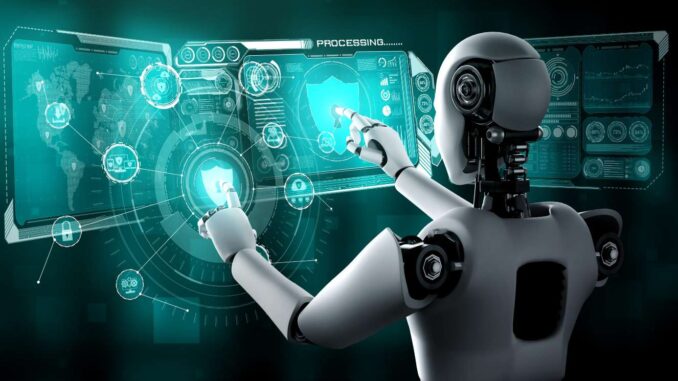
AI has made significant strides in the information technology (IT) field and continues to transform various aspects of the industry. Here are some key areas where AI is having a notable impact:
– **Process Automation:** AI technologies like Robotic Process Automation (RPA) are used to automate repetitive tasks, such as data entry, report generation, and IT support, allowing human workers to focus on more complex problems.









– **DevOps Optimization:** AI can assist in automating parts of the software development lifecycle, including coding, testing, and deployment, enhancing productivity and reducing time to market.
### 2. **Data Analysis and Insights**
– **Big Data Analytics:** AI algorithms are used to analyze large datasets quickly, identifying patterns and trends that can inform business decisions. This includes predictive analytics that can forecast future trends based on historical data.
– **Natural Language Processing (NLP):** AI enables better data processing and analysis through NLP, allowing organizations to extract insights from unstructured data like emails, social media posts, and customer feedback.
### 3. **Cybersecurity**
– **Threat Detection:** AI systems are increasingly employed to detect and respond to cybersecurity threats in real time. Machine learning models can identify unusual patterns in network traffic, flagging potential breaches or attacks.
– **Behavioral Analysis:** AI can analyze user behavior to establish baselines and identify anomalies that may indicate security risks or insider threats.
### 4. **IT Operations (AIOps)**
– **Event Correlation and Incident Management:** AI can automate the process of correlating IT events and incidents, enabling faster response times and minimizing downtime. AIOps platforms use machine learning to analyze data from various IT operations tools, improving decision-making.
– **Predictive Maintenance:** AI can monitor system health and performance to predict potential failures before they occur, allowing for proactive maintenance and reducing downtime.
### 5. **Improved User Experience**
– **Chatbots and Virtual Assistants:** AI-powered chatbots can handle customer inquiries, provide technical support, and improve user engagement by offering 24/7 assistance.
– **Personalization:** Machine learning algorithms can analyze user behavior and preferences to offer personalized recommendations, enhancing the user experience across various applications.
### 6. **Cloud Computing**
– **AI-Powered Services:** Major cloud providers like AWS, Google Cloud, and Azure are integrating AI services into their platforms, enabling developers to easily incorporate machine learning into their applications without extensive expertise.
– **Resource Management:** AI can optimize cloud resource allocation and usage, helping organizations save costs and improve performance.
### 7. **Research and Development**
– **Accelerating Innovation:** AI is being used in various R&D efforts, from software development to scientific research, facilitating faster discovery and innovation.
– **No-Code/Low-Code Platforms:** AI is empowering users to develop applications without extensive programming skills, democratizing access to technology development.
### Challenges and Considerations
While AI offers numerous benefits, its integration into the IT field also raises challenges, such as:
– **Data Privacy and Security**: Ensuring that AI systems handle sensitive data responsibly and comply with regulations is crucial.
– **Bias and Fairness**: AI algorithms can inherit biases from the data they are trained on, leading to unfair outcomes.
– **Skills Gap**: As AI technology evolves, there is a need for skilled professionals who can manage and implement AI systems effectively.
### Conclusion
Overall, AI is reshaping the IT landscape by automating processes, enhancing security, analyzing data, and improving user experiences. As AI technology continues to advance, its integration into the IT field is likely to grow, bringing both opportunities and challenges. Organizations that effectively leverage AI will likely gain a competitive advantage in the rapidly evolving tech environment.


Leave a Reply